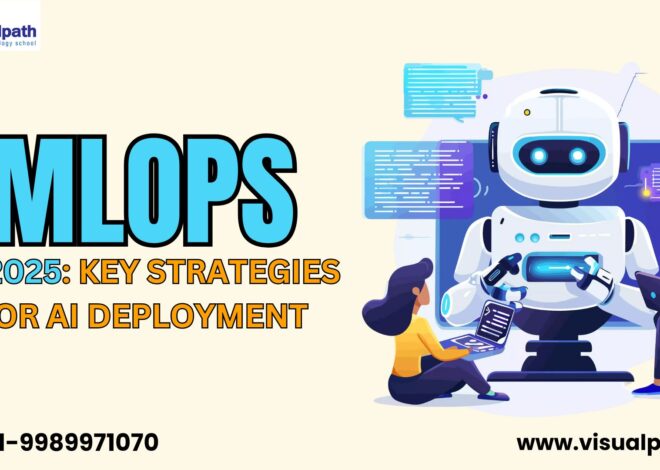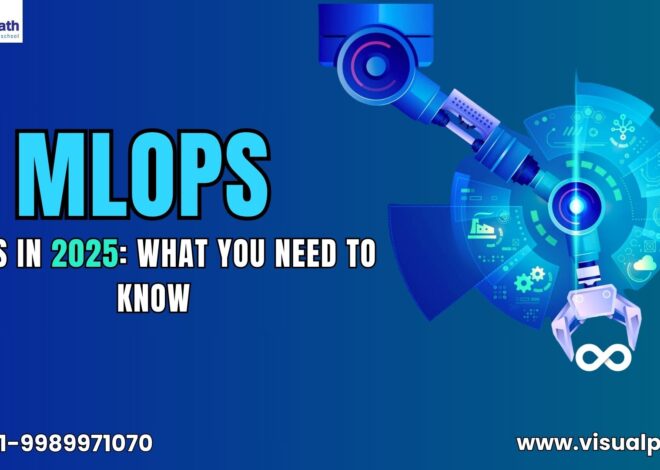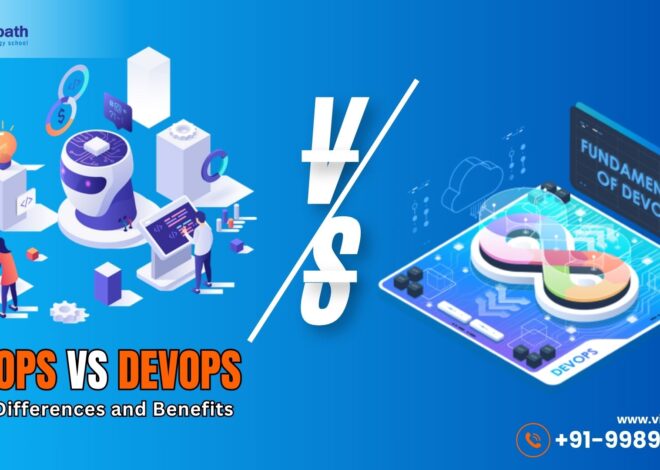Across many industries, machine learning (ML) is becoming a revolutionary force. Companies are leveraging its power for tasks ranging from fraud detection to product recommendation, with impressive results. However, the journey from a promising ML model in a data scientist’s notebook to a reliable, real-world solution can be fraught with challenges. This is where MLOps comes in.
MLOps: Bridging the Gap Between Data Science and Production
MLOps, a term coined by combining “machine learning” with “operations,” is a set of practices that automates and manages the ML lifecycle. It ensures a smooth transition from model development to production deployment and continuous monitoring.
Here’s why MLOps is crucial:
- Repeatability and Reproducibility: MLOps fosters a standardized and documented approach to model development. This ensures that models can be reliably rebuilt and produce consistent results, even by different teams or after personnel changes.
- Efficiency and Scalability: MLOps automates tedious tasks like data reprocessing, model training, and deployment. This streamlines the ML workflow, freeing up data science resources for more strategic work. As models become more complex and data volumes grow, automation becomes even more critical. MLOps Online Training
- Governance and Control: MLOps helps enforce best practices for model development, versioning, and deployment. This mitigates risks associated with bias, drift, and errors, ensuring models are compliant with regulations and ethical guidelines.
- Monitoring and Improvement: MLOps facilitates the continuous monitoring of model performance in production. This allows for early detection of issues like performance degradation or data drift, enabling proactive interventions and continuous improvement.
Building a Robust ML Pipeline with MLOps
The MLOps lifecycle can be broken down into several key stages:
- Version Control and Collaboration: Machine learning projects involve numerous components: code, data, model artifacts. MLOps utilizes version control systems like Git to track changes, ensure collaboration, and revert to previous versions if necessary. MLOps Training in Ameerpet
- Data Management: High-quality data is the cornerstone of good ML models. MLOps establishes a robust data pipeline that cleanses, transforms, and validates data before training and ensures continuous data flow for retraining.
- Model Training and Experimentation: MLOps automates model training pipelines. This includes tasks like pre-processing data, setting up training environments, and deploying hyper parameter tuning to optimize model performance.
- Model Packaging and Versioning: Once trained, models need to be packaged for deployment. MLOps creates a containerized environment with all dependencies, including code, libraries, and the trained model itself. Versioning allows for tracking changes and reverting to previous iterations if needed.
- Model Deployment and Monitoring: MLOps facilitates model deployment to production environments. This may involve integrating the model with APIs or micro services for real-time predictions. Furthermore, MLOps tools continuously monitor model performance, tracking metrics like accuracy, bias, and fairness. MLOps Training in Hyderabad
- Feedback Loop and Retraining: Real-world data can differ from training data. MLOps enables the capture of feedback from production models, allowing for retraining and improvement as needed. This ensures models stay relevant and continue to deliver value.
MLOps: Tools and Considerations
The MLOps landscape is constantly evolving, with a wide range of tools available for each stage of the pipeline. Popular options include:
- Version control systems: Git, Subversion
- Data management platforms: Kubeflow, Dataflow
- Machine learning frameworks: TensorFlow, PyTorch
- Model packaging tools: Docker, MLflow
- Monitoring and logging platforms: Prometheus, Grafana
Choosing the right tools depends on several factors:
- Project complexity
- Team size and skillsets
- Infrastructure and cloud environment
Beyond the Tools: Culture and Collaboration
While tools are essential, MLOps is ultimately about fostering a collaborative culture between data science, engineering, and operations teams. This requires establishing clear communication channels, defining roles and responsibilities, and implementing best practices for model development and governance.
Conclusion:
MLOps empowers organizations to unlock the full potential of machine learning. By bridging the gap between data science and production, MLOps ensures that models are not just scientific experiments, but reliable and valuable business assets. As the field of ML continues to evolve, MLOps will play a crucial role in driving innovation and delivering real-world impact. MLOps Course in Hyderabad
The Best Software Online Training Institute in Ameerpet, Hyderabad. Avail complete Machine Learning Operations Training by simply enrolling in our institute, Hyderabad. You will get the best course at an affordable cost.
Attend Free Demo
Call on – +91-9989971070.
WhatsApp: https://www.whatsapp.com/catalog/919989971070/
Visit: https://www.visualpath.in/mlops-online-training-course.html




